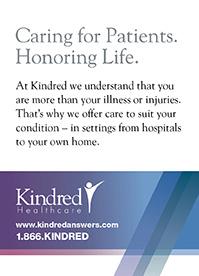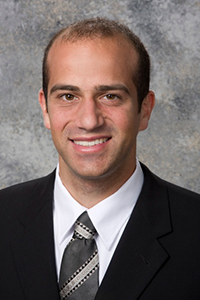Fee-For-Service to Value-Based Payment Transformation: Provider Strategies and Readiness - Part 3
|
Fee-For-Service to Value-Based Payment Transformation: Integrating Medicare and Commercial Payors While Embracing Medicaid - Part 4
|
Fee-For-Service to Value-Based Payment Transformation: Successful Population Health Management - Part 5
|
Have an article to contribute or words of wisdom for the Philosopher's Corner?
|
|

Click here
to learn more about Kindred Healthcare.
|

Click here
to learn more about Willis Towers Watson.
|
|
|

Happy New Year!
As we begin 2018, I'm happy to announce a new standing column, "Mind the Gap," a series on health (in)equity - issues related to health disparities, cultural competency, health literacy (check out the topic on WHCMAA's Business of Healthcare's session on SIRIUS XM) - and the social determinants of health.
Health inequities are systematic differences in the health status of different population groups. These inequities, seen in subpopulations defined by such factors as age, gender, geography, disability status, socioeconomic status, and race/ethnicity, have significant social and economic costs both to individuals and societies, with the economic burden to the U.S. economy estimated at hundreds of billons of dollars per year. Contributory factors which exacerbate such inequities include implicit bias on the part of care delivery providers (the attitudes or stereotypes that affect our understanding, actions, and decisions in an unconscious manner) and health insurance coverage status.
Social determinants of health (SDOH) are conditions in the environment in which people are born, live, learn, work, and play that affect a wide range of health, functioning, and quality-of-life outcomes and risks. Examples which have a negative impact on health and well-being include food insecurity and an inadequate built environment (e.g., the absence of safe sidewalks or playgrounds in a neighborhood).
And stay tuned for the April issue when you will be able to hear from Maurice Jones, visionary CEO of the Local Initiative Support Corporation (LISC). LISC recently announced a commitment to narrowing the life expectancy gap as one of the central goals of its deployment of more than $10 billion over the next 10 years in urban and rural underinvested communities.
Z. Colette Edwards, WG'84, MD'85
Managing Editor
To learn more about Colette,
click here.
|
 The President's Desk
The President's Desk
|

Last October the Leonard Davis Institute celebrated its 50th anniversary by putting on a symposium. Titled "Shaping the Future of Healthcare," the two-day event featured giants of health policy weighing in on what's next with U.S. healthcare.
Read more.
|

This article series focuses on happiness and answers the question - does a constant pursuit of happiness make us unhappy? We will explore the importance of happiness and how it impacts our quality of life.
Pause for a moment, set down your phone, and think about the level of engagement you have with your device. When out to dinner, where are your phone and your attention? Is it on your dinner companion or your device? When you're stopped at a red light, do you stay focused on the task at hand or do you immediately pick up your phone to scroll through emails or Facebook? Ever wonder how this tech overload is impacting your quality of life? Could your digital habits be sabotaging your sleep and impacting your health and happiness? This third article reviews research on the impact of mobile devices and social media on our well-being and explores how our digitally connected world has impacted our happiness level.
Read more.
|
 The Philosopher's Corner
The Philosopher's Corner
|

This eclectic standing column features insightful musings, words of wisdom, life lessons, and stepping stones to business success. This month's philosopher is Tom Kupp, WG'85; BSE '80.
Read more
.
We'd love to hear from you and invite you to click here to participate in future editions. Column Editor: Z. Colette Edwards, WG'84, MD'85.
|
|
|
Terminator, iRobot, Ex Machina and countless others depict a futuristic society in which artificial intelligence runs awry, with computers taking over human civilization. Far-fetched? Stephen Hawking, Elon Musk, and Bill Gates don't think so. In fact, Stephen Hawking stated that "Success in creating [artificial intelligence] would be the biggest event in human history. Unfortunately, it might also be the last, unless we learn how to avoid the risks." Elon Musk calls A.I. "our greatest existential threat," and Bill Gates warned that the present beneficial effects of A.I. could be superseded decades from now when it will threaten human jobs and pose dangerous threats to human civilization.
Read more
.
|
 Downloading Success: Executive Succession and Leadership Development - Part 2 Downloading Success: Executive Succession and Leadership Development - Part 2 |

In this two-part series, we explore the executive succession planning landscape and the opportunities for leadership development it can represent if undertaken strategically and effectively.
The churn of the healthcare labor pool has companies realizing that working to retain top talent is inherently less problematic than continually shopping for new leaders - it takes four times the salary of a departed employee to replace him or her. Through our own decades of working with healthcare organizations, we have identified a number of competencies that can elevate an individual's ability to lead, as well as some best practices for cultivating leaders for succession.
Read more
.
|

 To Your Well-Being
: The Speed Limits of Exercise: First, take the foot off the brake.
To Your Well-Being
: The Speed Limits of Exercise: First, take the foot off the brake.
|
My daughter peeks over my shoulder and takes a glance at the speedometer to ask "Daddy, what is the speed limit? Are we going too fast?" She understands that in school zones we drive slower, on the highway we drive faster, but she can't remember our trip to Texas where we traveled around 85 mph, legally. But with time she will gain the experience necessary to make her own judgments. So it goes with exercise. Weekly I am asked "I don't want to get my heart rate too high, do I?" The (relatively) new trend toward H.I.T. 'high intensity training' or 'interval' focused exercise plans has added a dimension to the traditional exercise model.
Read more
.
|
|
|
The careful crafting of accurate, consistent, and meaningful messages can calm the public in uncertain times, avoid perceptions of chaos, and build trust. This paper highlights principles of clear communication and insights from several decades of health literacy studies to support such efforts. Gain insights from the members of the Roundtable of Health Literacy of the National Academy of Sciences.
Read more
.
|

Words matter to writers and poets. Similarly, they should matter to leaders. Carefully chosen, they are the key tools of a leader. They can frame reality, give meaning to work, emotionally touch those an organization is built to serve, and inspire individual excellence.
Read more
.
|
|

|

Telemedicine provides cost-effective, convenient, and portable healthcare. A rising number of providers are considering adding telemedicine to their practice; however, for many physicians, adapting to this delivery system can seem daunting due to concerns which include: quality assurance, time allocation, training requirements, and an online, limited physical exam. Furthermore, some providers feel telemedicine will fragment patient rapport and continuity of care, which could further fragment healthcare. Despite multiple published surveys showing patients are ready for telemedicine, these concerns raise the question, "Is medicine ready for telemedicine?"
Read more
.
|

Almost 3 years ago, I partnered with Beverly Bradway, WG'91 to start a new company called Opting Back In (OBI). Simply put, our vision is to create an ecosystem to support professional women who have taken time off from the workforce in order to care for their family.
Read more
.
|

Governance is hard work - some may even call it an art - and it demands ongoing, intentional efforts to ensure its effectiveness. More importantly, the unique nature of each board must be reflected in any effort to strengthen it. Sure, there are best practices and guidelines that provide a framework for "good governance." Best practices are important, but what's more important is being clear about what the organization is trying to achieve and striking the right balance between the roles of the board vs. that of the staff to ensure that it can happen. As an advisor and a board member, I've found the following issues to be central to this work.
Read more
.
|

Disclaimer: The opinions expressed within are those of the authors and editors of the articles and do not necessarily reflect the views, opinions, positions or strategies of the Wharton School and/or the University of Pennsylvania, and/or their respective organizations. Publication in this e-magazine should not be considered an endorsement. The
Wharton Healthcare Quarterly e-magazine and WHCMAA make no representations as to accuracy, completeness, currentness, suitability, or validity of any information in this e-magazine and will not be liable for any errors, omissions, or delays in this information or any losses, injuries, or damages arising from its display or use.
|
|
|
|
|
|